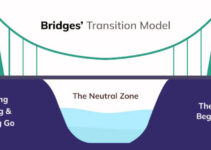The objective of change management is to avoid incidents, gain a competitive edge, and keeping customers happy ultimately. In the modern age and era, the expectations of customers are very high and they want high-performance services. To achieve a high level of performance and continuous improvement, businesses and companies have devised various roles and responsibilities relevant to change management. Today, we’ll discuss change management team roles and responsibilities.
Qualification and Skills for Change Management
Some main skillsets and qualifications to become part of change management are as follows;
- Change management certification
- Significant experience in any large corporation and organization relevant to change management efforts
- Familiar with the phases and tools of the project lifecycle; project management strategies
- Comprehending organizational issues and challenges
- Team player to collaborates with others
- Working efficiently and effectively at different levels of the organization
- Recognizing the root cause and problem-resolution skill
- Highly organized and natural interest in planning strategies and practices
- Moving forward with radical approaches
- Capability to persevere and resilient nature
- Adaptability and flexibility in ambiguous situations and circumstances
- The capability of moving forward and influencing others toward the common objective and vision
- Developing and maintaining great relationships with others
- Devising messages for the diverse target market
- Active listener
- Excellent communication skills bother written and verbal
- Knowledge and experience in change management tools, strategies, and methodologies
- Comprehension of change processes and what people are going through during the change
Change Management Team Roles and Responsibilities
Some of the key change management team roles and responsibilities are as follows;
Change Process Owner
The change process owner is a role of a senior management position with the duty of making sure that all the change processes are functioning within the IT organization. SMEs don’t have to hire another change manager for small changes, one position would be sufficient.
Responsibilities
Some of the responsibilities of a change process owner are as follows;
- Launching the process improvement initiative
- Sending process performance reports to the change managers and CAB
- Analyzing and making improvements in the overall processes of change management
- Facilitating collaboration among various departments that is necessary for change
- Sharing guidelines with the relevant stakeholders
- Dividing various processes and offering support to the change managers and CAB
Emergency Change Advisory Board
The ECAB is a smaller unit within the CAB that deals with emergency changes. Once the emergency change request comes to the surface; the change managers should evaluate and analyze before making the final decision with CAB.
Responsibilities
Some of the key responsibilities of the emergency change advisory board (ECAB) are as follows;
- Making sure that the expertise and resources within the CAB are available to make the right decision at the right time
- Analyzing the efficiency of the emergency change implementation process
- Rejecting and approving the emergency changes
- Conducting risk analysis, impact evaluation, and change requests before finalizing the decisions
- Facilitating the change managers during the risk assessment and impact stage
- Analyzing the significance of change request
Change Advisory Board
The CAB role comprises high-level managers from different areas like business relations, service desk, networking, development, operations, and information security.
Responsibilities
Some of the key responsibilities of the change advisory board are as follows;
- Employing expertise, skills, and expertise of every CAB member before finalizing the decision
- Approving new change process models and facilitating the design
- Analyzing the change implementation process
- Conducting performance evaluation and validating relevant tests before approving the high-risk changes
- Analyzing requests for change (RFC) like organizational readiness, change impact, and availability of resources
- Supporting and facilitating change manager
Change Manager
The role of the change manager is to lead the team toward the change management programs. The CM should have the relevant certifications, skills, expertise, and background of launching structural changes within the organization. (Change Management Team Roles and Responsibilities)
Responsibilities
Some of the key responsibilities of change managers are as follows;
- Analyzing the organizational readiness and change impact to minimize the potential risks
- Devising a strategic method to support operations and manage operations that fall under the category of change management
- Leading change management processes within the structured framework
- Facilitating communication and training and development sessions as a change program like providing training resources, designing the session, etc
- Analyzing change risk and offering tips and guidelines on decreasing the impact
- Studying the resistance to adopting the change at different levels like users, processes, or technology
- Dealing with a change portfolio that helps companies to successfully implement the change
- Authorizing small change requests and collaborating with the CAB
- Launching post-implementation reviews to analyze the performance and decisions relevant to the change
Assignment Group Manager (Assessor)
It is the role of conducting tech analysis of the change to make sure that it aligns with the entire IT architectural design; recognizing the relationships, and analyzing the results.
Responsibilities
Some of the key responsibilities of an assignment group manager are as follows;
- Making sure to assign the relevant and appropriate resources
- Recognizing all the relationships and configuration items
- Supporting and facilitating the necessary documents for the change like the test, installation, or remediation plan
- Analyzing all the risk factors and checking the validity of initial priority setting
Change Approver
The role of change approver is occupied by various people in the hierarchical levels of change management structure and framework. The change approver has to make sure that the change request would meet the necessary standards and protocols of readiness and send the decision to the change managers and CAB.
Responsibilities
Some of the key responsibilities of a change approver are as follows;
- Starting the approval of change requests before sending them to the change managers and CAB
- Communicating with various stakeholders
- Supporting and facilitating the documentation process before sending a request to the change managers
Change Implementer
Change implementers also go by the name of the assignee or owner; they consider themselves the owner throughout the process of the request lifecycle. The change tester fills the role of change requester and facilitates the process of creating and sending change requests. (Change Management Team Roles and Responsibilities)
Responsibilities
Some of the key responsibilities of a change implementer are as follows;
- Making sure that the requester has performed the necessary tests before proceeding with the change request
- Documenting the whole change process throughout the request lifecycle
Change Requester
The change requester has to collaborate with the change management team to facilitate the impact of assessment by gathering data and sharing it with other stakeholders.
Responsibilities
Some of the key responsibilities of a change requester are as follows;
- Obligation and duty of launching, preparing, and sending the change requests
- Supporting and facilitating the collection of necessary business information
- Communicating with the relevant stakeholders before assigning the change request to the change tester
Conclusion: Change Management Team Roles and Responsibilities
After an in-depth study of change management team roles and responsibilities; we have realized that the change management team has got various roles. If you are learning about the change management team roles and responsibilities, then you should keep in mind the abovementioned roles and their relevant duties and obligations.
Ahsan is an accomplished researcher and has a deep insight in worldly life affairs. He goes Live 3 days a week on various social media platforms. Other than research writing, he’s a very interesting person.


